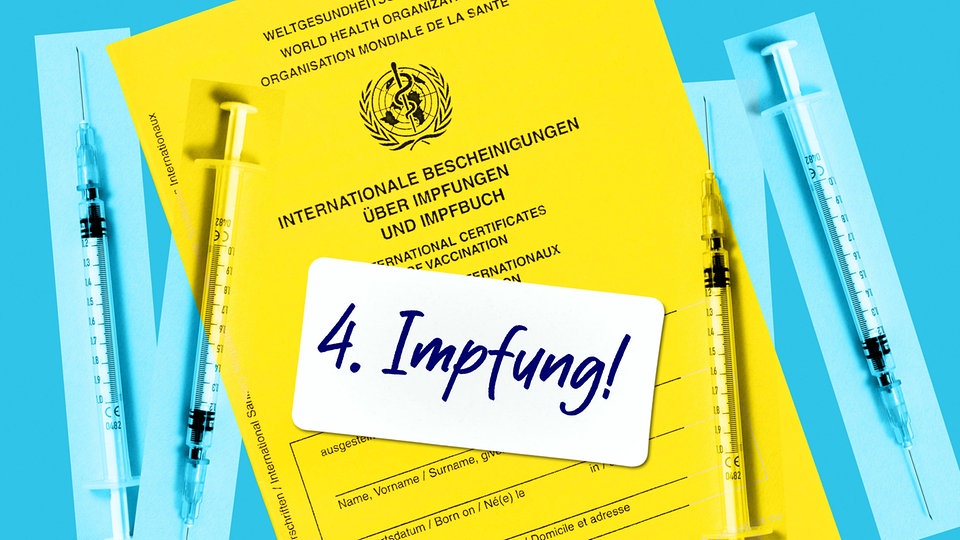Federal Health Minister Karl Lauterbach recommends it, but do healthy adults really need a second corona booster? Some experts advise against it. What are the arguments for the fourth dose and what speaks against it?
–
Who recommends vaccination and who does not?
Stiko, which is responsible for vaccination recommendations in Germany, has so far only considered a second booster vaccination to be useful for parts of the population: for example for people over the age of 70, patients with a suppressed immune system, nursing home residents and staff in medical facilities. Other experts have backed Stiko on this issue in recent months.
Federal Minister of Health Karl Lauterbach, on the other hand, keeps pushing for more four vaccinations and recently brought these into play for all adults. Then there are two EU authorities: ECDC and EMA called on the member states to offer second boosters from the age of 60. Stiko boss Thomas Mertens then announced that the committee would comment “relatively soon” on a possible extension of the existing recommendation.
–
How is the vaccination recommendation for under 60 year olds justified?
Lauterbach: If you want to enjoy the summer without the risk of illness, he would also recommend the second booster vaccination – “in consultation with the family doctor, of course” – for younger people, Lauterbach recently told the “Spiegel”. With the second booster vaccination you have “a completely different security”. He argues with a significantly reduced risk of infection for a few months and a significantly lower long-Covid risk.
Lauterbach later specified his recommendation for people who had “a lot of contacts”. As examples he gave people who work in a bar or in a workshop. They should talk to their family doctor about a possible second booster.
–
What do critics say about this?
The virologist Mertens told the “Welt am Sonntag” that he did not know any data that justified Lauterbach’s advice. “I think it’s bad to make medical recommendations under the motto ‘a lot helps a lot'”. The EU authorities ECDC and EMA stated that there is currently no clear epidemiological evidence to support the administration of second boosters in immunologically healthy people under the age of 60 – unless patients have health problems.
–
What other arguments do experts have?
From the point of view of several immunologists, the three corona vaccinations previously recommended by Stiko are sufficient for healthy adults under 60 to build up a stable immunological memory. It usually offers at least protection against serious illness, hospitalization and death.
However, even the fourth dose does not bring absolute, long-lasting protection against infection for this group. Carsten Watzl, Secretary General of the German Society for Immunology, advises anyone who no longer wants to risk infection before going on vacation, for example, to protect themselves with a mask, distance and contact reduction. Epidemiologist Hajo Zeeb also assumes that the second booster vaccination for under 60-year-olds will only have a small advantage, especially if people have also been ill in the meantime.
–
Second booster for under 60s yes or no?
Even if it is unsatisfactory: At the moment, this question cannot be answered in general terms. It also depends on how well the individual’s immune system responded to the first three vaccinations. The immunologist Andreas Thiel from the Berlin Charité says that for “some few” people under 60, the fourth vaccination could be essential – but you can’t easily recognize it.
For most in this age group, however, a fourth dose is not really essential. “Everyone has to answer that question for themselves.” However, your own family doctor can help with the decision. The Stiko is legally responsible for vaccination recommendations and many doctors follow their advice. However, physicians may also administer a second booster without a Stiko recommendation.
–
What about the vaccination status in Germany?
Apart from the question of more four vaccinations: Measured against the previous Stiko recommendations, there are some vaccination gaps. In a July report, the Robert Koch Institute stated that around 1.3 million people over the age of 60 and around 7.9 million adults under the age of 60 still had to refresh their vaccination protection with at least one vaccination. Around 1.9 million people over the age of 60 and around 7.3 million adults under the age of 60 have not yet received a vaccination.
–
Waiting for adapted vaccines?
According to the Minister of Health, vaccines adapted to the omicron variant are in the starting blocks. Moderna recently received information that its vaccine will be available “in August”. Then it depends on the licensing authorities. The status is similar at Biontech/Pfizer. According to the vaccine manufacturers, the biggest brake is the approval process. Given the race between the virus and vaccines, there are even proposals to speed up the approval process. Biontech boss Ugur Sahin is in favor, as he recently told the “Financial Times”. He spoke of a four-month time advantage through a procedure without additional clinical studies.
A few weeks ago, the medicines agency EMA, which is responsible for approval in Europe, signaled that, depending on the data submitted, a framework similar to that of the flu vaccination could possibly be reached. No clinical data would have to be submitted before the annually updated vaccine could be approved. The expert discussion about it is in progress, it is said.
The decision as to whether people who have been vaccinated three times should wait for an adapted vaccine or not can currently only be answered by everyone for themselves – ideally after consulting their family doctor. There are no guidelines for this. But it is also clear that the risk of infection is very high given the current corona numbers. And: “The vaccines that are already available protect against serious illness, even with the previous Omicron variants,” says the President of the Society for Virology, Ralf Bartenschlager.
–
–

